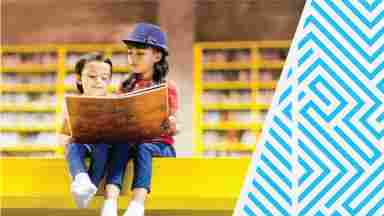- What if they have more empathy, they enjoy family connection, they can be more creative and entertain themselves?
- What if they enjoy the simple things, like their own backyard, sitting near a window in the quiet, and the calming renewal of a gentle rain shower?
- What if they are the ones to place great value on our teachers and educational professionals, public servants and previously invisible essential support workers, just to name a few of the millions taking care of us while we are sheltered in place?
- What if among these children, a great leader emerges who had the benefit of a slower pace and a simpler life to truly learn what really matters in this life?



